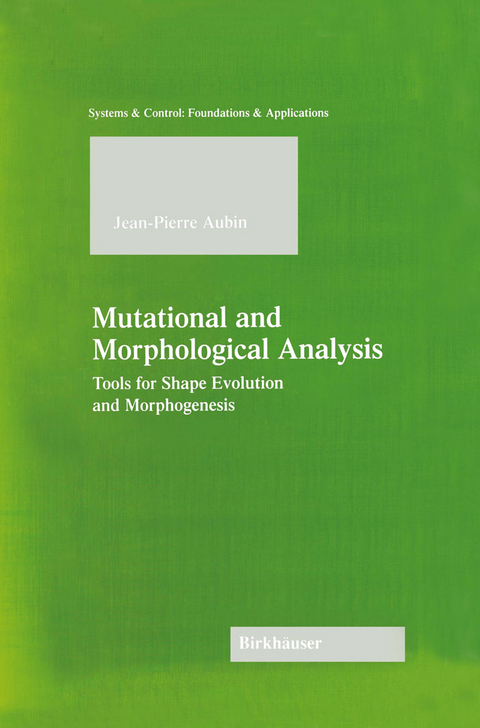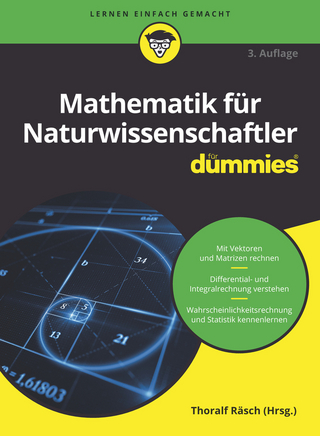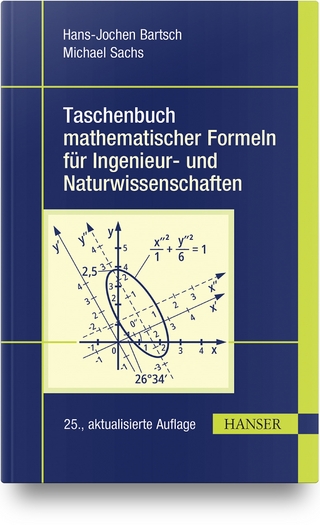
Mutational and Morphological Analysis
Tools for Shape Evolution and Morphogenesis
Seiten
2012
|
Softcover reprint of the original 1st ed. 1999
Springer-Verlag New York Inc.
978-1-4612-7200-7 (ISBN)
Springer-Verlag New York Inc.
978-1-4612-7200-7 (ISBN)
The analysis, processing, evolution, optimization and/or regulation, and control of shapes and images appear naturally in engineering (shape optimization, image processing, visual control), numerical analysis (interval analysis), physics (front propagation), biological morphogenesis, population dynamics (migrations), and dynamic economic theory.
These problems are currently studied with tools forged out of differential geometry and functional analysis, thus requiring shapes and images to be smooth. However, shapes and images are basically sets, most often not smooth. J.-P. Aubin thus constructs another vision, where shapes and images are just any compact set. Hence their evolution -- which requires a kind of differential calculus -- must be studied in the metric space of compact subsets. Despite the loss of linearity, one can transfer most of the basic results of differential calculus and differential equations in vector spaces to mutational calculus and mutational equations in any mutational space, including naturally the space of nonempty compact subsets.
"Mutational and Morphological Analysis" offers a structure that embraces and integrates the various approaches, including shape optimization and mathematical morphology.
Scientists and graduate students will find here other powerful mathematical tools for studying problems dealing with shapes and images arising in so many fields.
These problems are currently studied with tools forged out of differential geometry and functional analysis, thus requiring shapes and images to be smooth. However, shapes and images are basically sets, most often not smooth. J.-P. Aubin thus constructs another vision, where shapes and images are just any compact set. Hence their evolution -- which requires a kind of differential calculus -- must be studied in the metric space of compact subsets. Despite the loss of linearity, one can transfer most of the basic results of differential calculus and differential equations in vector spaces to mutational calculus and mutational equations in any mutational space, including naturally the space of nonempty compact subsets.
"Mutational and Morphological Analysis" offers a structure that embraces and integrates the various approaches, including shape optimization and mathematical morphology.
Scientists and graduate students will find here other powerful mathematical tools for studying problems dealing with shapes and images arising in so many fields.
I Mutational Analysis in Metric Spaces.- 1 Mutational Equations.- 2 Mutational Analysis.- II Morphological and Set-Valued Analysis.- 3 Morphological Spaces.- 4 Morphological Dynamics.- 5 Set-Valued Analysis.- III Geometrical and Algebraic Morphology.- 6 Morphological Geometry.- 7 Morphological Algebra.- IV Appendix.- 8 Differential Inclusions: A Tool-Box.- Biblographical Comments.
| Reihe/Serie | Systems & Control: Foundations & Applications |
|---|---|
| Zusatzinfo | XXXVII, 425 p. |
| Verlagsort | New York |
| Sprache | englisch |
| Maße | 155 x 235 mm |
| Themenwelt | Mathematik / Informatik ► Mathematik ► Allgemeines / Lexika |
| Mathematik / Informatik ► Mathematik ► Algebra | |
| Mathematik / Informatik ► Mathematik ► Analysis | |
| Mathematik / Informatik ► Mathematik ► Angewandte Mathematik | |
| Mathematik / Informatik ► Mathematik ► Logik / Mengenlehre | |
| Schlagworte | Analysis |
| ISBN-10 | 1-4612-7200-9 / 1461272009 |
| ISBN-13 | 978-1-4612-7200-7 / 9781461272007 |
| Zustand | Neuware |
| Informationen gemäß Produktsicherheitsverordnung (GPSR) | |
| Haben Sie eine Frage zum Produkt? |
Mehr entdecken
aus dem Bereich
aus dem Bereich
Buch | Hardcover (2023)
Hanser, Carl (Verlag)
CHF 48,95
Geschichten aus der europäischen Mathematik der Neuzeit
Buch | Softcover (2024)
Springer (Verlag)
CHF 41,95


